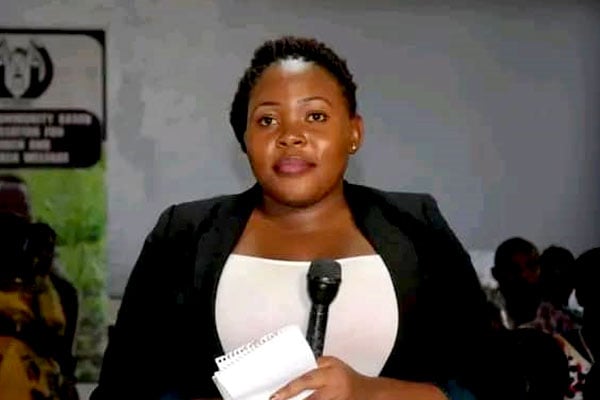Minister Aceng blocks UVRI from Ebola testing

Health Minister Dr Ruth Aceng (right) addresses health workers at Mubende hospital on October 6. Photo/Dan Wandera
What you need to know:
- UVRI, the country’s top virus research centre, has its own vote and is mandated by the government to monitor and conduct research on viral diseases and other infectious agents.
- The institute hosts national and international reference laboratories for highly infectious viruses.
The Minister of Health, Dr Jane Ruth Aceng, has blocked Uganda Virus Research Institute (UVRI) from overseeing the testing of the Ebola virus, this newspaper has learnt.
Highly placed sources in the government confirmed to this publication that the minister has given the powers of testing of Ebola to Kampala-based Central Public Health Laboratories (CPHL), which is directly under the Health ministry.
UVRI, the country’s top virus research centre, is mandated by the government to monitor and conduct research on viral diseases and other infectious agents.
However, Dr Aceng, in a meeting with the Ebola task force on October 6 at Mubende District Council Hall, ordered the UVRI staff to vacate the Mubende Ebola Treatment Unit (ETU) immediately.
“I now state it clearly that if you are the UVRI staff and still here [in Mubende Ebola treatment unit], please go,” said Dr Aceng.
She added: “No research will be conducted without my knowledge, never! And it has ended.”
The government on October 3 established a mobile laboratory in Mubende to reduce the turnaround time for Ebola tests in the country, which were two to three days.
The tests were initially being done at the UVRI laboratories in Entebbe, about 130 kilometres away from Mubende, the Ebola Virus Disease (EVD) epicentre.
“We can now get the results between four and six hours. Case management is highly dependent on the test results that must be availed on time,” said Mr Godfrey Kimundu, the laboratory manager at Mubende hospital.
UVRI non-committal
Prof Pontiano Kaleebu, the UVRI director, when asked about the orders from the minister, said: “I don’t want to talk about that issue.”
However, Prof Kaleebu also said they have been doing research on suspected Ebola patients and that through this, recently, they were able to detect the second case of Crimean-Congo haemorrhagic fever (CCHF). Still, in the Mubende meeting, Dr Aceng banned the double sample collection from Ebola suspects.
The Health minister questioned the essence of collecting two blood samples from a single patient.
“It has come to my notice that two blood samples are still taken from a single patient at the ETU. This must stop. The government will not entertain a second party trying to manipulate and interfere by way of research through unauthorised means. It is one blood sample per person,” Dr Aceng said.






